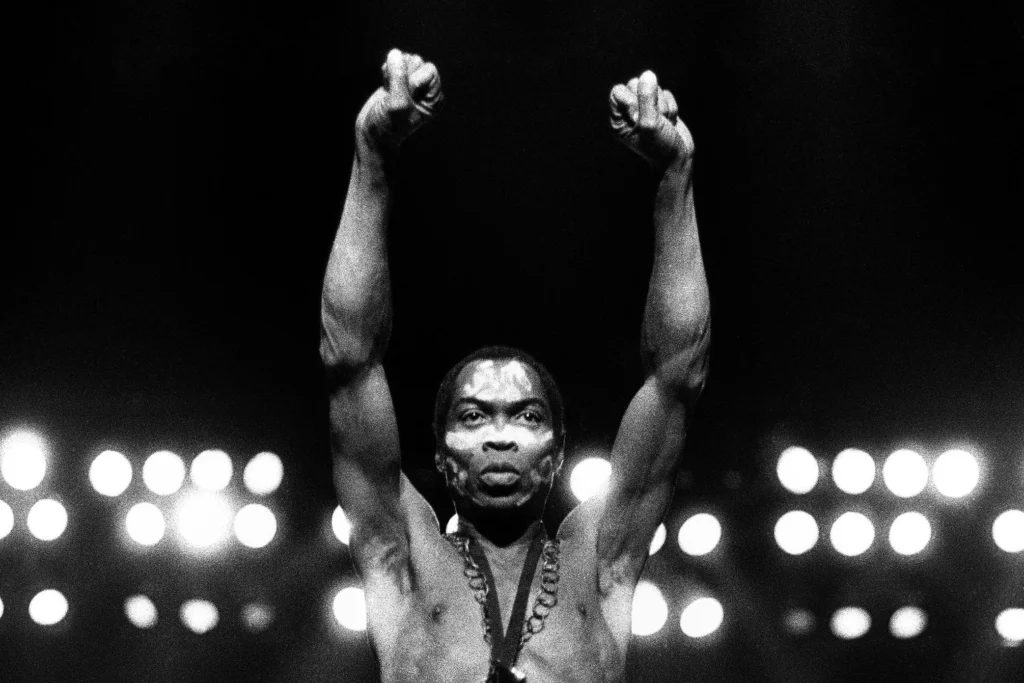In the past decade, a wave of African artists including Wizkid, Ayra Starr, Burna Boy, Tems, Fally Ipupa, and Tyla, has surged onto the global music entertainment scene, asserting themselves as major trendsetters. This represents a significant shift, marking the final recognition of a previously underappreciated branch of world music. This article delves into the evolution of post-independence African music. Particularly the sounds of Afrobeat, a music genre emerging in post-independence Nigeria and carrying a rich heritage of political activism, has managed to assert itself as the mainstream sound of Africa outside the continent. By understanding its trajectory, we can gain insights into its current status and unearth any underlying shifts.
A Brief History: Music, Society and Politics
In many native African societies and civilizations, music held a significance far beyond mere entertainment or pastime. Instead, it played an integral role, whether as part of rituals or accompanying specific daily activities through distinct rhythms and melodies. A role that it kept on carrying – even after the continent’s brutal integration in the global capitalist system. In the struggle for independence, music emerged as a powerful tool for rallying populations and mobilising them to fight for political freedom. For instance, Mau Mau singers vividly depicted their mistreatment, serving as both chroniclers of injustice and catalysts for collective action.
When (formal) political autonomy was finally attained in some African countries, many songs released at that time gained the status of informal anthems. Think of DR Congo’s Independence Cha Cha or Bissau Ginea’s Labanta Braço. Through their grassroots origins and widespread appeal, these songs became symbols of hope and solidarity, resonating deeply with diverse communities across the continent.
This relationship between the public and the musical arts, where the latter plays the role of democratic amplifier of political contestation, remained prevalent in the second part of the 20th century. In apartheid South Africa, for example, one can think of Miriam Makeba, who was exiled after exposing the brutal treatment of black and remained a fervent fighter for the segregationist system.
Fela Kuti & AfroBeat: Africanization and Activism
One of the greatest artists of this era was Fela Kuti; the spiritual father of the now globally famous AfroBeat genre. Drawing from his Nigerian Yoruba heritage, Kuti blended beats from James Brown’s funk and the improvisational culture of jazz, creating a genre that can be seen as a paradoxical quest for the Africanization of modern music through hybridization. A journey that he embarked on throughout his decade-long career, bringing Afrobeat to uncharted territories before being reappropriated by his peers and musical descendants. As such, he gained international recognition from numerous melanated peers on the other side of the Atlantics such as James Brown and Miles Davis
Pan Africanist at heart, and living in the tumultuous era of post-independence Nigeria, Fela Kuti also assumed an important role as an open critic of his country’s dictatorial regime. His compound, Kalakuta, where he lived with his family and band, served as a hub for his creative endeavours and activism. In a bold move to challenge the Nigerian dictatorship, he declared Kalakuta an independent nation. Vervantly criticising the government in his songs, his compound was ultimately destroyed during a police raid, further highlighting the intimate link between politics and music that Fela Kuti greatly incarnates.
Contemporary Music: Mainstreamization and counterculture
More than 25 years after Fela Kuti’s passing, a new African Giant has emerged from Nigeria: Burna Boy. Self-proclaimed successor of Fela Kuti, Africa’s most famous artist has tried to perpetuate his spiritual father’s political messages by prioritising collaborations with other Nigerian artists and regularly releasing songs about his country’s difficult socio-economic circumstances.
In his most recent albums, which also coincide with his growing fame, critics (2) have highlighted the growing number of instant-gratifying engineered chart toppers and ego-tripping. Simultaneously, he has multiplied collaborations with artists reaching far from his music style and fandom; a move interpreted by many as a calculated manoeuvre to broaden his audience. As such, it seems that Burna Boy’s vocal political views became an obstacle to his increasing stardom, which required him to shift his attention to more accessible music. Hence, despite promoting universalist ideas through his new sounds and collaborations, it is undeniable that Burna Boy’s profit oriented strategy, at the expense of the contestatory content of their music, reduces the deeply political origin of the Afro Beat legacy that he claims to a mere aesthetic. An observation to some extent shared by others, which has sparked the conversation about whether afrobeats should be gatekept.
With that said, reducing African music to its aforementioned mainstreamization would, however, be a dishonour to the persisting political music movements that emerged in the 21st century. Morocco has known the emergence of Nayda, a movement that came about in response to the reforms introduced by Mohamed VI. Borrowing sounds from Reggae and Rock, the movement has a clear ideological message, emphasises pluralism, independence, autonomy, and the use of popular dialects. In Uganda, on the other hand, Bobi Wine, a reggae musician turned politician, emerged as a prominent voice of the youth during the country’s 2021 elections. His transition into politics was marked by challenges, including imprisonment and an attack on his car. Wine views his entry into the political arena as a natural continuation of the messages embedded in his music. Through his activism and advocacy, he embodies the aspirations of Uganda’s younger generation, striving for societal change and political reform.
Conclusion
This brief account of post-independence African music, Afro Beat in particular, shows the profound role of music and musicians in the continent’s culture and society, far exceeding mere gratification and entertainment. A unique feature that used to be dominant in the musical landscape, most notably through figures like Felat Kuti and Miriam Makeba, but seem to have been displaced to the margins or to formal political arenas since the start of the 20th century. Instead, the artists representing the african sound on the global stage are required to reduce their political dimension to a branding accessory to maintain their highly profitable position. These important yet latent evolutions require us to think of African music in its multiplicity, reintroducing the question of what defines contemporary Africanization of music.

